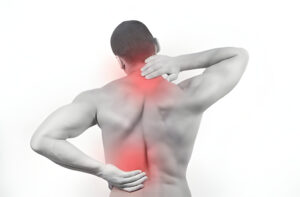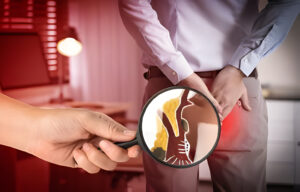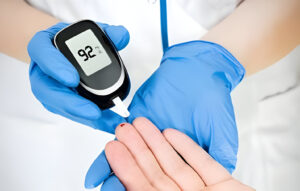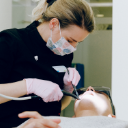Buy Full Course Of any of Our Medicine & get 50% of our overall price off !
Sexual Health
Exploring the Dimensions of Sexual Wellness: Understanding, Satisfaction, and Health
1 : Why do we have sexual problems?
Physical Factors: Medical conditions such as diabetes, heart disease, hormonal imbalances, neurological disorders, and chronic illnesses can affect sexual function. Medications used to treat these conditions may also have side effects that impact sexual health.
Psychological Factors: Mental health issues like anxiety, depression, stress, and body image concerns can interfere with sexual desire, arousal, and satisfaction. Past trauma or negative sexual experiences may also contribute to sexual problems.
Relationship Issues: Conflict, lack of communication, trust issues, or unresolved conflicts within a relationship can affect sexual intimacy and satisfaction. Differences in sexual preferences or desires between partners can also lead to difficulties.
Lifestyle Factors: Unhealthy lifestyle choices such as smoking, excessive alcohol consumption, drug use, poor diet, and lack of exercise can negatively impact sexual health and function.
Performance Anxiety: Fear of not performing well sexually or concerns about satisfying one’s partner can lead to performance anxiety, which may result in difficulties achieving or maintaining an erection (in men) or experiencing orgasm (in both men and women).
Cultural and Religious Factors: Sociocultural and religious beliefs and attitudes towards sex can influence an individual’s sexual behavior and attitudes, potentially causing conflicts or guilt surrounding sexual expression.
Trauma and Abuse: Past experiences of sexual abuse, assault, or trauma can have long-lasting effects on sexual function and may contribute to difficulties in sexual relationships.
Age-related Changes: As individuals age, hormonal changes, menopause (in women), and age-related health conditions can affect sexual desire, arousal, and performance.
2 : How to Increase Sex power : 20 tips to Increase Sexual power Naturally
Exercise Regularly: Regular physical activity can improve blood flow, increase stamina, and boost overall energy levels, which can enhance sexual performance. Aim for at least 30 minutes of moderate exercise most days of the week.
Maintain a Healthy Diet: Eat a balanced diet rich in fruits, vegetables, whole grains, lean proteins, and healthy fats. Certain foods like oysters, spinach, nuts, and watermelon may have aphrodisiac properties and can support sexual health.
Manage Stress: Chronic stress can negatively impact sexual desire and performance. Practice stress-reduction techniques such as deep breathing, meditation, yoga, or mindfulness to promote relaxation and reduce anxiety.
Get Adequate Sleep: Lack of sleep can lead to fatigue, decreased libido, and sexual difficulties. Aim for 7-9 hours of quality sleep per night to support overall health and sexual function.
Limit Alcohol and Avoid Smoking: Excessive alcohol consumption and smoking can impair sexual function and decrease libido. Limit alcohol intake and quit smoking to improve sexual health.
Communicate with Your Partner: Open communication with your partner about sexual desires, preferences, and concerns is essential for a satisfying sexual relationship. Discussing expectations and exploring each other’s needs can enhance intimacy and pleasure.
Address Underlying Health Conditions: If you have underlying health issues such as diabetes, heart disease, or hormonal imbalances, work with your healthcare provider to manage these conditions effectively. Treating any medical issues can improve sexual function.
Practice Kegel Exercises: Kegel exercises strengthen the pelvic floor muscles, which can improve erectile function, ejaculation control, and orgasm intensity in both men and women.
Explore Sensate Focus: Sensate focus exercises involve focusing on physical sensations and pleasure without the pressure of performance. These exercises can help reduce anxiety and enhance sexual arousal.
Seek Professional Help if Needed: If you’re experiencing persistent or severe sexual difficulties, consider consulting a healthcare provider or sex therapist for personalized guidance and support.
Maintain a Healthy Weight: Being overweight or obese can contribute to sexual difficulties such as erectile dysfunction and reduced libido. Maintain a healthy weight through a combination of balanced diet and regular exercise.
Stay Hydrated: Adequate hydration is essential for overall health, including sexual function. Drink plenty of water throughout the day to maintain hydration levels.
Practice Mindfulness and Relaxation: Engage in activities that promote relaxation and mindfulness, such as meditation, progressive muscle relaxation, or tai chi. Reduced stress levels can improve sexual desire and performance.
Explore Erotica and Fantasies: Reading erotica, sharing sexual fantasies with your partner, or engaging in role-playing can stimulate arousal and enhance sexual excitement.
Try Natural Supplements: Some herbal supplements and natural remedies are believed to support sexual health and libido. Examples include ginseng, maca root, horny goat weed, and Tribulus terrestris. However, it’s essential to consult with a healthcare provider before using any supplements, as they may interact with medications or have potential side effects.
Use Lubrication: For individuals experiencing vaginal dryness or discomfort during intercourse, using a water-based lubricant can help increase comfort and pleasure.
Explore Sensory Enhancement: Experiment with sensory stimulation techniques such as erotic massage, using scented oils or candles, or incorporating music and mood lighting to create a more sensual atmosphere.
Stay Sexually Active: Engaging in regular sexual activity can help maintain sexual function and desire. Even if intercourse isn’t possible, intimacy through cuddling, kissing, and other forms of physical affection can strengthen emotional bonds and sexual connection.
Educate Yourself: Learn more about sexual health, anatomy, and techniques through reputable sources such as books, online resources, or workshops. Understanding your own body and sexual responses can enhance confidence and pleasure.
Prioritize Emotional Intimacy: Building emotional intimacy and connection with your partner outside the bedroom can enhance sexual satisfaction and overall relationship satisfaction. Spend quality time together, communicate openly, and show affection and appreciation for each other regularly.
3 : How to Increase sperm Count Naturally?
Maintain a Healthy Diet: Eat a balanced diet rich in nutrients such as vitamins C and E, zinc, selenium, and omega-3 fatty acids. Include plenty of fruits, vegetables, whole grains, lean proteins, and healthy fats in your diet. Avoid excessive intake of processed foods, sugary snacks, and unhealthy fats.
Stay Hydrated: Drink plenty of water throughout the day to stay hydrated. Proper hydration is essential for sperm production and overall reproductive health.
Limit Alcohol and Avoid Smoking: Excessive alcohol consumption and smoking can negatively impact sperm count and quality. Limit alcohol intake and avoid smoking to support healthy sperm production.
Maintain a Healthy Weight: Obesity and being overweight can contribute to hormonal imbalances and decrease sperm production. Maintain a healthy weight through regular exercise and a balanced diet.
Exercise Regularly: Engage in moderate exercise most days of the week to promote overall health and improve blood flow to the reproductive organs. However, avoid excessive or intense exercise, as it may negatively affect sperm production.
Manage Stress: Chronic stress can impair fertility and reduce sperm count. Practice stress-reduction techniques such as meditation, deep breathing, yoga, or mindfulness to promote relaxation and reduce stress levels.
Get Enough Sleep: Aim for 7-9 hours of quality sleep per night to support hormonal balance and reproductive health. Poor sleep quality or insufficient sleep may negatively impact sperm production.
Avoid Exposure to Environmental Toxins: Minimize exposure to environmental toxins and pollutants that may affect reproductive health, such as pesticides, heavy metals, and chemicals found in certain plastics and personal care products.
Take Dietary Supplements: Certain supplements may help improve sperm count and quality. Examples include vitamin C, vitamin E, zinc, selenium, coenzyme Q10, and L-arginine. However, it’s essential to consult with a healthcare provider before taking any supplements, as they may interact with medications or have potential side effects.
Avoid Hot Baths and Saunas: Excessive heat exposure to the testicles can impair sperm production. Avoid prolonged exposure to hot baths, saunas, or tight-fitting underwear that can increase scrotal temperature.
Practice Safe Sex: Protect yourself from sexually transmitted infections (STIs) by practicing safe sex. Some STIs can lead to infertility if left untreated.
Limit Exposure to Radiation and EMFs: Minimize exposure to sources of radiation and electromagnetic fields (EMFs), such as mobile phones, laptops, and other electronic devices, which may have adverse effects on sperm quality.
Consider Fertility-Friendly Lubricants: If using lubricants during sexual activity, choose fertility-friendly options that do not harm sperm motility or viability.
Have Regular Sexual Activity: Regular ejaculation can help flush out old sperm and promote the production of healthy sperm. Aim to have sex regularly, but avoid excessive ejaculation, as it may temporarily reduce sperm count.
Consult a Healthcare Provider: If you’re concerned about low sperm count or fertility issues, consult with a healthcare provider or fertility specialist for personalized evaluation and guidance.
4 : What Are the Symptoms Of low sperm Count ?
Difficulty Conceiving: One of the primary symptoms of low sperm count is difficulty conceiving a child with your partner, especially if you’ve been actively trying for more than a year without success.
Changes in Sexual Function: Some men with low sperm count may experience changes in sexual function, such as reduced libido (sex drive) or difficulty maintaining an erection (erectile dysfunction).
Decreased Ejaculate Volume: A decrease in the volume of semen during ejaculation may indicate low sperm count. However, this symptom may not always be noticeable without a semen analysis.
Pain or Swelling in the Testicles: Pain, discomfort, or swelling in the testicles may be associated with conditions that affect sperm production, such as varicocele (enlarged veins in the scrotum) or infections.
Recurrent Respiratory Infections: Some research suggests a potential link between low sperm count and recurrent respiratory infections, although further studies are needed to confirm this association.
Hormonal Imbalances: Hormonal imbalances, such as low testosterone levels (hypogonadism), may contribute to low sperm count and can sometimes manifest with symptoms like decreased muscle mass, fatigue, or mood changes.
Changes in Body or Facial Hair: In some cases, low sperm count may be associated with changes in body or facial hair growth patterns, particularly if caused by hormonal imbalances.
5 : Side Effects of long term compulsive Masturbation
{Physical Side Effects:}
Genital irritation or soreness: Frequent masturbation with vigorous rubbing or inadequate lubrication may cause irritation, redness, or soreness of the genitals.
Temporary erectile dysfunction: Excessive masturbation may lead to desensitization of the penis, resulting in temporary difficulty achieving or maintaining an erection during sexual activity with a partner.
Decreased sensitivity: Some individuals may experience a decrease in sensitivity of the genitals over time due to frequent stimulation, which could affect sexual responsiveness.
Fatigue or physical exhaustion: Masturbation can sometimes be physically draining, especially if done excessively or for prolonged periods, leading to fatigue or exhaustion.
{Psychological Side Effects:}
Guilt or shame: Cultural or religious beliefs, societal stigma, or personal values may lead to feelings of guilt or shame associated with masturbation, especially if it conflicts with one’s beliefs or values.
Anxiety or depression: Excessive masturbation, particularly if used as a coping mechanism for stress or negative emotions, may contribute to feelings of anxiety, depression, or emotional distress.
Relationship problems: Compulsive masturbation may interfere with intimate relationships, leading to conflicts with partners, feelings of isolation, or difficulty forming emotional connections.
Obsessive thoughts or behaviors: In some cases, excessive masturbation may become a compulsive behavior, leading to obsessive thoughts, preoccupation with sexual activities, or difficulties controlling urges.
Sleep Disturbances: Masturbation, particularly if done close to bedtime, may affect sleep patterns for some individuals. Some people may experience difficulty falling asleep or disrupted sleep after masturbating, especially if it becomes a frequent or compulsive behavior.
Decreased Motivation or Productivity: Excessive masturbation may lead to feelings of lethargy, decreased motivation, or difficulty focusing on tasks or responsibilities. This could impact work, school, or other areas of life where concentration and productivity are important.
Physical Injury: In rare cases, aggressive or forceful masturbation techniques may lead to physical injury to the genitals, such as friction burns, abrasions, or even penile fractures (rupture of the tunica albuginea). It’s essential to practice gentle and safe masturbation techniques to avoid injury.
Impact on Sexual Functioning: While occasional masturbation is unlikely to have a significant impact on sexual function, excessive or compulsive masturbation may affect sexual performance or satisfaction over time. This could include difficulties achieving orgasm during partnered sex, changes in sexual desire, or challenges with arousal or ejaculation.
Social Withdrawal: In some cases, excessive masturbation may lead to social withdrawal or isolation. Individuals may prioritize masturbation over social interactions, hobbies, or other activities, leading to feelings of loneliness or disconnection from others.
Negative Self-Image: Persistent feelings of guilt, shame, or embarrassment about masturbation may contribute to a negative self-image or low self-esteem. This could impact overall well-being and mental health.
Escalation of Behavior: For some individuals, compulsive masturbation may lead to an escalation of sexual behaviors or the development of other problematic sexual habits, such as viewing pornography excessively or engaging in risky sexual activities.
Interference with Daily Life: If masturbation becomes a primary focus or consumes a significant amount of time and energy, it may interfere with daily functioning, relationships, work, or other responsibilities.
6 : Ayurvedic Remedies to last longer in bed!
Ashwagandha (Withania somnifera): Ashwagandha is an adaptogenic herb known for its rejuvenating properties and its ability to combat stress and anxiety. It may help improve sexual stamina, boost libido, and enhance overall sexual performance.
Shilajit: Shilajit is a mineral-rich substance that is believed to enhance vitality, stamina, and sexual potency. It is often used in Ayurvedic medicine to improve sexual health and endurance.
Safed Musli (Chlorophytum borivilianum): Safed Musli is a medicinal plant known for its aphrodisiac properties. It is believed to increase sexual stamina, improve libido, and enhance sexual performance.
Gokshura (Tribulus terrestris): Gokshura is an herb commonly used in Ayurveda to support reproductive health and improve sexual function. It may help increase testosterone levels, enhance libido, and improve erectile function.
Kapikacchu (Mucuna pruriens): Kapikacchu is a leguminous plant that contains L-dopa, a precursor to dopamine, which plays a role in sexual arousal and pleasure. It may help improve libido, enhance sexual performance, and support overall sexual health.
Vajikarana Therapy: Vajikarana is a branch of Ayurveda that focuses on enhancing sexual potency and fertility. It includes various herbal formulations, dietary recommendations, lifestyle practices, and rejuvenation therapies aimed at improving sexual function and vitality.
Dietary Recommendations: Ayurveda emphasizes the importance of following a balanced diet to support overall health and well-being, including sexual health. Incorporating nutrient-rich foods such as fruits, vegetables, whole grains, nuts, seeds, and lean proteins can help nourish the body and improve sexual stamina.
Stress Management: Chronic stress and anxiety can negatively impact sexual performance and stamina. Ayurvedic practices such as yoga, meditation, pranayama (breathwork), and daily relaxation techniques can help reduce stress, promote relaxation, and enhance sexual vitality.
Healthy Lifestyle Habits: Adopting healthy lifestyle habits such as getting regular exercise, maintaining a healthy weight, getting adequate sleep, and avoiding excessive alcohol consumption and smoking can support overall sexual health and stamina.
Consultation with an Ayurvedic Practitioner: It’s essential to consult with a qualified Ayurvedic practitioner or healthcare provider before using any herbal remedies or supplements, especially if you have underlying health conditions or are taking medications. They can provide personalized recommendations based on your individual constitution and health needs.
7 : Which is the best ayurvedic medicin for sexual power ?
Ashwagandha (Withania somnifera): Ashwagandha is a popular adaptogenic herb known for its rejuvenating properties. It is believed to increase vitality, stamina, and sexual potency. Ashwagandha helps reduce stress and anxiety, which can positively impact sexual performance.
Shilajit: Shilajit is a mineral-rich substance formed over centuries from decomposed plant matter. It is considered a potent aphrodisiac and is believed to improve sexual function, increase stamina, and enhance libido.
Safed Musli (Chlorophytum borivilianum): Safed Musli is a medicinal plant valued for its aphrodisiac properties. It is used in Ayurvedic medicine to improve sexual vigor, enhance fertility, and boost libido.
Kapikacchu (Mucuna pruriens): Kapikacchu, also known as velvet bean, contains L-dopa, a precursor to dopamine. It is believed to improve sexual desire, arousal, and performance. Kapikacchu is often used to address conditions like erectile dysfunction and low libido.
Gokshura (Tribulus terrestris): Gokshura is an herb commonly used in Ayurveda to support reproductive health. It is believed to increase testosterone levels, improve erectile function, and enhance libido.
Vidarikanda (Pueraria tuberosa): Vidarikanda is a rejuvenating herb known for its aphrodisiac properties. It is believed to increase stamina, improve sexual function, and enhance overall vitality.
Vang Bhasma: Vang Bhasma is an Ayurvedic preparation made from purified tin. It is used in Ayurveda to improve sexual strength, treat erectile dysfunction, and enhance libido.
Musali Pak: Musali Pak is an Ayurvedic formulation containing herbs like Safed Musli, Ashwagandha, Shatavari, and Gokshura. It is used to improve sexual potency, increase stamina, and boost overall vitality.
Chandraprabha Vati: Chandraprabha Vati is an Ayurvedic herbal formulation used to improve sexual health and treat various sexual disorders. It contains herbs like Shilajit, Gokshura, and Ashwagandha, among others.
Confido: Confido is an Ayurvedic proprietary medicine developed by Himalaya Herbal Healthcare. It is formulated to improve sexual performance, treat premature ejaculation, and enhance libido.
Siddha Makardhwaja: Siddha Makardhwaja is an Ayurvedic preparation made from purified mercury, sulfur, and other herbal ingredients. It is used to improve sexual vitality, enhance libido, and boost overall stamina.
Akarkara (Anacyclus pyrethrum): Akarkara is an herb known for its aphrodisiac and stimulant properties. It is believed to improve sexual potency, increase stamina, and enhance sexual desire.
Shatavari (Asparagus racemosus): Shatavari is a rejuvenating herb used in Ayurveda to support reproductive health in both men and women. It is believed to improve libido, increase sperm count, and enhance sexual function.
Jaiphal (Nutmeg): Jaiphal is a spice commonly used in Ayurvedic medicine for its aphrodisiac properties. It is believed to improve sexual stamina, enhance libido, and treat sexual disorders like premature ejaculation.
Kesar (Saffron): Kesar is a prized spice known for its aphrodisiac properties. It is believed to enhance sexual desire, increase sperm count, and improve overall sexual performance.
Trikatu Churna: Trikatu churna is a traditional Ayurvedic herbal powder consisting of equal parts of black pepper, long pepper, and ginger. It is believed to improve digestion, stimulate metabolism, and enhance sexual vigor.
Yauvanamrit Vati: Yauvanamrit Vati is an Ayurvedic herbal formulation used to rejuvenate the body and improve sexual health. It contains herbs like Ashwagandha, Shilajit, and Vidarikanda, among others, known for their aphrodisiac properties.
Kaunch Beej (Mucuna pruriens seeds): Kaunch Beej is a potent Ayurvedic herb known for its aphrodisiac and nervine tonic properties. It is believed to increase sperm count, improve sperm motility, and enhance sexual performance.
Jatiphala (Nutmeg): Jatiphala is another name for nutmeg, which is valued in Ayurvedic medicine for its aphrodisiac and stimulant properties. It is believed to improve sexual stamina, enhance libido, and increase sexual potency.
Bala (Sida cordifolia): Bala is an Ayurvedic herb used to promote strength, vitality, and sexual vigor. It is believed to enhance libido, improve erectile function, and increase stamina.
8 : Food for Sexual Health
Fruits and Vegetables:
Berries: Blueberries, strawberries, raspberries, and blackberries are rich in antioxidants, vitamins, and minerals that support overall health, including sexual health.
Avocado: Avocados are a good source of healthy fats, vitamin E, and potassium, which may promote blood flow and enhance sexual vitality.
Spinach: Spinach is rich in folate, a nutrient that may help improve blood flow and support reproductive health.
Bananas: Bananas contain potassium and vitamin B6, which are essential for hormone production and may help boost libido and energy levels.
Watermelon: Watermelon contains citrulline, an amino acid that can help relax blood vessels and improve blood flow, similar to how Viagra works. Consuming watermelon may help improve erectile function and sexual performance.
Nuts and Seeds:
Almonds: Almonds are a source of healthy fats, protein, and vitamin E, which may support sexual health and increase energy levels.
Pumpkin seeds: Pumpkin seeds are rich in zinc, which is important for testosterone production and may help improve sperm quality and libido.
Flaxseeds: Flaxseeds are high in omega-3 fatty acids, fiber, and lignans, which may help balance hormone levels and improve sexual function.
Seafood:
Fatty fish: Salmon, mackerel, and sardines are rich in omega-3 fatty acids, which may help improve blood flow, reduce inflammation, and support sexual health.
Oysters: Oysters are a well-known aphrodisiac and are high in zinc, which is important for testosterone production and sperm health.
Shellfish: Shrimp, crab, and lobster are rich in zinc and other minerals that support reproductive health.
Herbs and Spices:
Garlic: Garlic contains allicin, a compound that may help improve blood flow and circulation, which can benefit sexual function.
Ginseng: Ginseng is an adaptogenic herb that has been traditionally used to improve sexual function, increase libido, and reduce stress.
Saffron: Saffron is believed to have aphrodisiac properties and may help improve sexual desire and performance.
Maca Root: Maca root is a Peruvian plant known for its aphrodisiac properties. It is believed to increase libido, improve erectile function, and enhance fertility.
Whole Grains:
Quinoa: Quinoa is a nutritious whole grain that is rich in protein, fiber, and minerals, which may help support overall health and energy levels.
Oats: Oats are a good source of soluble fiber and may help lower cholesterol levels and improve blood flow, which can benefit sexual health.
Dark Chocolate:
Dark chocolate contains flavonoids, which may help improve blood flow and circulation, leading to better sexual function and arousal.
Water:Staying hydrated is essential for overall health and sexual function. Drinking plenty of water helps maintain proper hydration levels and supports blood flow to the genitals.
9 : How to Quit masturbation
Set Clear Goals: Define your reasons for wanting to quit or reduce masturbation. Whether it’s for personal, religious, or health reasons, having clear goals will help motivate you to stay committed.
Understand Triggers: Identify the triggers that lead to your masturbation habits. These could be stress, boredom, loneliness, or certain environmental cues. By understanding your triggers, you can develop strategies to avoid or manage them effectively.
Find Healthy Outlets: Replace masturbation with healthier activities that you enjoy and that can distract you from the urge to masturbate. Engage in hobbies, exercise, spend time with friends and family, or pursue personal goals to keep yourself occupied.
Limit Access to Triggers: Reduce your exposure to triggers that prompt masturbation. For example, if certain websites or materials stimulate the urge to masturbate, consider blocking or limiting your access to them.
Practice Self-Control: Develop self-control techniques to resist the urge to masturbate when it arises. Techniques such as deep breathing, mindfulness meditation, or redirecting your thoughts to positive activities can help you regain control over your impulses.
Stay Busy: Keep yourself busy with productive tasks and activities throughout the day to minimize idle time, during which the temptation to masturbate may arise.
Seek Support: Talk to someone you trust about your desire to quit or reduce masturbation, such as a friend, family member, or therapist. Having support and accountability can make the process easier and more manageable.
Address Underlying Issues: Explore any underlying emotional, psychological, or relationship issues that may be contributing to your masturbation habits. Addressing these issues through therapy or counseling can help you develop healthier coping mechanisms.
Practice Patience and Persistence: Understand that quitting masturbation is a process that may take time and effort. Be patient with yourself and acknowledge that setbacks may occur along the way. Stay committed to your goals and keep working towards them.
Celebrate Progress: Celebrate your successes and milestones along the way, no matter how small. Recognize and reward yourself for your efforts and progress towards quitting or reducing masturbation.
10 : How can Boost Testosterone hormones
Maintain a Healthy Weight: Excess body fat, especially around the abdomen, can lead to lower testosterone levels. Aim to maintain a healthy weight through a balanced diet and regular exercise.
Regular Exercise: Engage in regular physical activity, including both cardiovascular exercise and strength training. Resistance training, such as weightlifting, has been shown to increase testosterone levels.
Get Sufficient Sleep: Prioritize quality sleep to support hormonal balance. Aim for 7-9 hours of sleep per night, as inadequate sleep can negatively impact testosterone levels.
Eat a Balanced Diet: Consume a diet rich in whole foods, including fruits, vegetables, lean proteins, healthy fats, and whole grains. Certain nutrients like zinc, vitamin D, and omega-3 fatty acids are particularly important for testosterone production.
Manage Stress: Chronic stress can lead to increased cortisol levels, which may suppress testosterone production. Practice stress-reduction techniques such as meditation, deep breathing, yoga, or spending time in nature.
Limit Alcohol Consumption: Excessive alcohol intake can interfere with testosterone production and lead to hormonal imbalances. Limit alcohol consumption to moderate levels or avoid it altogether.
Quit Smoking: Smoking has been associated with lower testosterone levels in men. Quitting smoking can improve overall health and may help increase testosterone levels.
Supplement Wisely: Certain supplements may help support testosterone production, including vitamin D, zinc, magnesium, and D-aspartic acid. However, it’s important to consult with a healthcare provider before taking supplements to ensure safety and efficacy.
Avoid Overtraining: While exercise is beneficial for testosterone levels, excessive or intense exercise can lead to increased cortisol levels and potentially lower testosterone. Balance your workout routine and incorporate rest days to prevent overtraining.
Maintain Healthy Relationships: Positive social connections and emotional well-being can contribute to hormonal balance. Cultivate healthy relationships with friends, family, and romantic partners to support overall health and well-being.
Limit Exposure to Endocrine Disruptors: Minimize exposure to environmental toxins and chemicals that may disrupt hormonal balance, such as pesticides, plastics containing BPA, and certain skincare products.
Consider Testosterone Therapy: If you have clinically low testosterone levels (hypogonadism) and lifestyle changes alone are not sufficient, your healthcare provider may recommend testosterone replacement therapy. However, this should only be done under medical supervision and after proper evaluation.
Working hours
Follow us:
Smile Ayurveda © 2021 All Right Reserved









